#FATE Core
Explore tagged Tumblr posts
Text
System Spotlight: Fate
The Fate system is freely available, and anyone can publish their own setting using its rules. There are three variations on the FATE rules.
Fate Core: the original Fate rulebook.
Fate Accelerated: a lighter variant, with characters having fewer 'aspects' than in Fate Core.
Fate Condensed: the most essential elements of Fate Core, for ease of reference for GMs familiar with the system.
The core SRD has one of my favourite tips that can be applied to dice rolls in any game!

If you want to run adventures in Fate: there are so many amazing settings to choose from! The ones below are all PWYW. This makes the initial cost of starting a Fate game (given the rulebooks are free) minimal.
The Aether Sea by Lara Turner
Play the crew of an aethercraft.
Elves and dwarves...in SPACE!
Magic aplenty!
Arecibo by Nicholas Hornyak
Play as children investigating a dark mystery.
Access bizarre alternate dimensions.
Cultivate eldritch power.
Great for fans of Stranger Things.
The Clockwinders by Jahmal Brown
A world that (literally) runs on clockwork.
Save this world from fey meddling!
Eagle Eyes by Pete Woodworth
Private investigators in ancient Rome.
Grungy noir setting.
Grimoire by Lore Graham and Chris Caporaso
Rich fantasy world.
Play demon-summoning warlocks for hire!
Ngen Mapu by Helena Real
Mapuche myth blends with modern civilisation.
Play shape-shifters from the dawn of time!
An emphasis on non-violent solutions to problems.
The bonds between your characters are a key element of the game.
The Way of the Pukona by Helena Real
Based in Neolithic Mapuche society.
Protect your community as a team of bold young women.
If your character dies safeguarding her community, gain bonuses for your new character.
9 notes
·
View notes
Text
Have you played FATE CORE ?
By Leonard Balsera, Brian Engard, Jeremy Keller, Ryan Macklin and Mike Olson
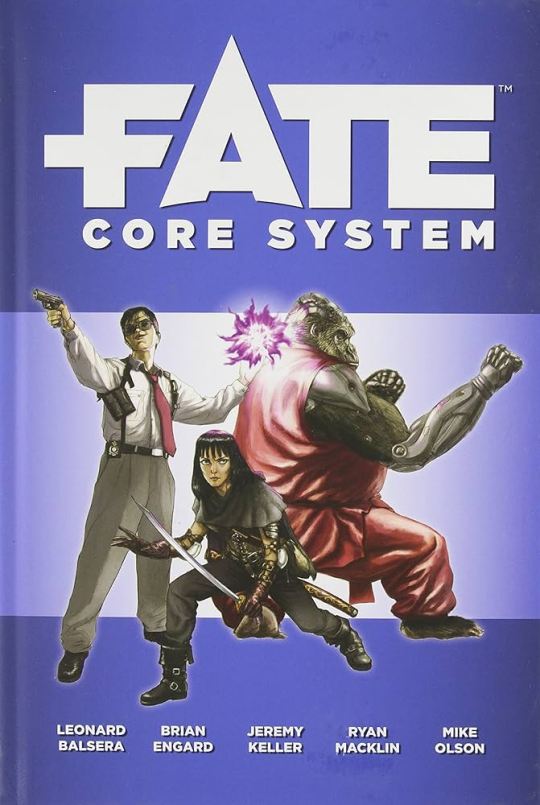
Our 400th poll
Grab your plasma rifles, spell components, and jetpacks! Name your game; Fate Core is the foundation that can make it happen. Fate Core is a flexible system that can support whatever worlds you dream up.
Have you always wanted to play a post-apocalyptic spaghetti western with tentacle monsters? Swords and sorcery in space? Wish there was a game based on your favorite series of books, film, or television, but it never happened? Fate Core is your answer.
Fate Core is a tabletop roleplaying game about proactive, capable people who lead dramatic lives.
101 notes
·
View notes
Text




Skor and his Dad
That's his dad! Evan!
Evan is a retired adventurer who worked as a tank -- so he's very proud right now that his kid is also starting to get into tanking.
[insert drama where his dad is dad is more excited and proud of Skor taking on tanking(not what he's in school for), than he is for skor's medical career]
This dad is a good dad, full of puns and camping tips.
Can't act for shit though
#oc#ocart#ocsketch#sketch#sketches#Skor#Skor Zone#father son art#little critter guy#i will die for this dad#so would skor#skor super proud of his dad too#ttrpg#fate core#fatecore#fatecore oc
15 notes
·
View notes
Text
Weird FATE Dice
I'm a big fan of the role-playing game FATE (also known as FATE Core). There are many things I love about FATE -- I could go on about the brilliance of aspects, the flexibility of the fractal structure of the game, or its near-infinite hackability. But the aspect of the game I like least is the dice. FATE inherited its dice from an older game called Fudge, and rather than using d20s, or d6s, or even d10s like nWoD, it uses two d3s marked with (minus, blank, plus). Usually, including the sets you can buy, these are in the form of d6s with two minus sides, two plus sides, and two blank sides. You roll four of these dice for each roll you need to make in the game.
This is cool in theory, but ends up meaning you have to use a whole special set of dice, or you have to mark up some blank or pipped D6 dice to make a set of FATE dice.
What if we used approximation to change things up a little?
First off, we can't use the whole rolling table. The chance of rolling any given combination of the dice is 1/81 -- in fact, you can buy a deck of 81 "FATE Cards" that do this exact thing, one card for each possible roll. That's 3^4. There's no such thing as a fair 81-sided die, so we're out of luck there.
How about approximating two FATE dice, and doing that twice? Well, the chance of any given combination of two FATE dice is 1/9. There's not really such a thing as a fair nine-sided die either. (You can use a doublemarked d18, but that's an extremely nonstandard shape, with very elongated sides.)
But we can approximate a d9 pretty well, in one of two ways. We can use one of two standard dice, a d8 or a d10. The rolling table for our "FATE d9" is [-2,-1,-1,0,0,0,1,1,2]. We can remove a 0 from this to get a "FATE d8" or add one to get a "FATE d10". The first is slightly swingier than 2dFATE, the second is slightly more centered.
But what if we use one of each?
If we roll a "FATE d8" and a "FATE d10" together, there are 80 possible combinations, compared to the 81 of a true 4dFATE roll. The rolling tables turn out to be completely identical, except that we're missing a single 0 roll. This means that the probability of every non-0 outcome is only 1.23% different in magnitude* between the two systems, and the probability of a 0 is only 4.25% different in magnitude.
*This is magnitude percentage, not percentage points, so this is a pretty impressive result. For example, the chance of a +4 on a 4dFATE roll is ~1.235%; our modified system has a 1.25% chance.
Now, does this fix my problems with the dice in the system? Not even a little bit. We've replaced four modified d6 -- the easiest kind of blank die to find -- with two separate modified polyhedrals. I have, as is my way, used math to make the situation worse. But it's fun that you can get a nearly identical result with two dice! Maybe I'll try printing up a set of "2dFAKE" of my very own.
I'm still thinking of a way to do FATE-esque results with standard, unmodified polyhedrals. One of the FATE supplements recommends d6-d6, which is VASTLY swingier... but what about rolling 4d6, throwing out the highest and lowest, and using the difference between the remaining two? I'll have to think about this.
18 notes
·
View notes
Text




Some silly doodles from a ghost-story-on-a-train oneshot I played with some friends using the Fate game system. Our 'train conductor' was meant to be on holiday, but instead has to get help from civilians on an impromptu job....sigh.
A regular train ride into the north of Finland turns into an indefinite ghost ride. Holiday-ing passengers - insurance broker Desmond and biker thug Silas - have a day of work ahead of them helping a supernatural hunter solve this solemn case... if they want to arrive at their intended destination.
Desmond is Inkwurm's character, Silas is mine.
#artists on tumblr#digital art#illustration#dark illustration#spooky art#horror art#sci fi art#ghost#ttrpg#ttrpg art#indie ttrpg#fate core#urban fantasy#ghost stories#jenareuter art#oc silas#gritrook art
9 notes
·
View notes
Note
Heya! TTRPG trick or treat, please! 🎃👻
This one's got a backstory, so stick with me.
When I first got into TTRPGs, I learned about the big 6: D&D, Pathfinder, CoC, Cyberpunk, WoD, and Shadowrun. Of those, I've still, to this day, only played 5, and Shadowrun has remained the odd man out, despite having probably my favorite setting of all of them after Pathfinder. Part of this is its reputation for being a really crunchy game, keeping me from getting players, and part of it was that it's a very crunchy game that explains its rules SO POORLY (in recent editions at least, I'm told 3rd is the best in this department) that I couldn't even really convince my friends to get over the hump because it's hard for ME to grok the rules.
For well over a decade, Shadowrun has been my white whale, always on my shelf, never my table. So I did what any other well meaning TTRPG player does when they have a setting they like but a system for that setting they hate: I looked at every hack on the planet for every other system.
So here's your treat: every Shadowrun hack I've found!
Up first, Runners in the Shadows by Mark Cleveland:
This is a Forged in the Dark hack for the Shadowrun setting that is probably one of the better ones for emulating the "crew going on heists and doing cool shit" vibes that Shadowrun tries really hard to say is its core. I'm a sucker for FitD games in general, I think the system is *so* elegant, and I struggle to find a system more suited for the setting (SR's own rules included) than Blades, so this one has to go at the top.
With that said, there are still plenty more!
I'm going to give 2 PbtA games a shout out here, the first I've played, the second I haven't, but have heard plenty about.
Up first: City of Mist!
"But that's not a shadowrun hack!" I hear you saying behind your screen, and you're almost right, it technically isn't, BUT it's asymptote certainly approaches shadowrun, for my math nerds out there. This is a game about the (literal) power of stories, about struggles against an unseen and unknowable force trying desperately to remove every semblance of magic from your life, and about the yearning to keep your mundane life despite, or maybe in spite of, your magical adventures. City of Mist proper is a fantastic gritty noir urban fantasy game that works wonderfully as the framework for an early 6th world setting with minor tweaks, but it's sequel: Metro Otherscape, leans into the Shadowrun of it all, adding a 3rd axis along which your character can struggle, being "noise". In Otherscape, you're balancing a mundane, magical, technological life, and trying not to let any of those three overwhelm your being. A lot of cyberpunk games try to say that cybernetics reduce your humanity in one way or another, but I think Otherscape does the best job at embodying that balance in a way that isn't deeply ableist in its messaging. It's ALSO the only PbtA game I actually LIKE.
Hot take: I can't stand Moves, they annoy me to no end, and needlessly complicate an otherwise brilliant system. I might make a follow up post if anyone wants to hear my deeply bad take, but for now, just know that I'm a ttrpg heretic, and we can move on.
Otherscape completely does away with moves, and instead just lets the MC and the players decide whatever is most relevant to the action being attempted! It solves almost every problem I've ever had with PbtA games, AND kicks ass as a shadowrun stand-in, so this also deserves a place at or near the top.
Second PbtA game: Shadowrun in The Sprawl. This one is a hack of The Sprawl, a PbtA cyberpunk game in its own right, SRiTS adds the setting and magic of SR to its formula, and that's all I know about either system, due to my aforementioned PbtA-phobia. I've included this one for thoroughness, not because I have any stake in it.
Most of the other hacks I've seen use generic systems like Fate, Savage World, Cypher system, Genesys, and a hero system hack I've heard a bit about but can't find anywhere. All of this is to say that there is a wealth of options for generic systems that try to emulate SR, and most of them are fine. The last game I'm going to talk about though uses its own system, its own setting, and manages to be completely, utterly unique while capturing the vibes of SR so well that I'm still a little in awe at how well it does all of the above. I'm also not 100% certain it's a particularly good game, but the fact that I'm unsure about it should tell you that it's definitely still better than SR proper, because I KNOW that system is bad.
Without further ado: NewEdo
NewEdo is fascinating to me in that it feels like the same jump from Shadowrun that 3rd edition D&D made from 2e, or even the same kind of jump from 3rd to 4th, where you can clearly see the spine of the game it's evolving, but almost every other part of the system has been changed and improved in new, interesting ways that can still be used to tell VERY similar stories, but has its own identity at the same time. I mentioned that City of Mist is Asymptotic to SR earlier, and I stand by that assessment, but I'd say that NewEdo is closer to a parallel line, or a tangent from SR's line, if we're using the same terminology. To get into the nitty gritty, NE uses a system the author describes as "Crunchy lite easily managed", which amounts to a priority system during character creation very similar to the one SR uses, but with each tier you can select having pretty impactful ramifications for your character going forward. The easiest example is the modifications priority, at its top tier, you basically make a mythical creature into robo cop for your character's ancestry, but at its absolute lowest tier, your body actively rejects any and all implants, such that your character will NEVER have implants. On the same note, cyberware is handled REALLY well, with your body only being able to handle so much at a time, but otherwise the only ramification is a "biofeedback" line on your fate card, which I'll get to right now!
Almost every option your character picks gets added to a little personalized random d100 table on your character sheet called the fate card. This includes your character's crit rate, the possibility of a deity intervening on your behalf, or the aforementioned biofeedback line, which briefly fucks you up as you cyberware malfunctions. You get new lines on your fate card through picking certain character options, making impactful decisions during the story, and otherwise fulfilling the express goals of your character. The entire system kind of hinges on the fate card as a mechanic, which is weird, because I don't think I super love it, as it adds additional rolling to an already pretty dice heavy system.
Which brings me to the dice! New edo uses a d10 as its primary die for dice pools when rolling your characteristics like strength, speed, etc, but the rest of the polyhedral family for your skills. (D20 excluded) The skill system is a little funky, but I like it. Basically, each skill has a rank, which indicates how many dice it has, but each rank is assigned a die, each having a different cost associated with it. So my swordsmanship could be rank 4, but what that really means is that I've got 1d6, 2d4, and a d8 that I get to add to my strength rolls every time I attack with a sword. As far as resolution, you total all of your dice together to try and hit a target number. I don't have the table handy, but it's something like 15 for a moderately challenging task, and up to 40 for a nearly impossible task. I dislike addition in this context because math at the table usually slows things down, but it looks like you're probably only rolling 2-5 dice at a time at the beginning, which isn't *that* bad.
You'll notice that the two major mechanics I've mentioned so far have received pretty luke-warm responses from me, and that sounds like I hate the system, but those aren't that makes me like (\love?) this system is the back end, the choices that happen during character creation, and the things that those choices let you do. Every skill is attached to feats that unlock at different skills, magic is a skill, and its feats unlock better relationships with the Kami in your repertoire (magic is up next, I promise) and your class (path, they call it) doubles as a way to tie your character to the world, with each being associated with an in world faction which gives your character an immediate stake in the world and their community. It's a lot, but it all comes together to make something greater than the sum of its parts.
The last thing I want to talk about is the magic system, because I found it deeply interesting, as it's one of the very few skill based magic systems I've interacted with, and one of my favorites on a narrative level. Instead of spells or spell schools, your character instead develops relationships with Kami, and each new "order" or "type" of Kami your character gets access to represents them finding out how to supplicate, make an offering, or otherwise convince a given Kami to do a certain effect. If you have a relationship with the fire Kami (that's plural, not singular), then your character has learned that their local fire Kami really like a certain type of hot bun, so they offer them that hot bun after a scene where they invoked those kami, to maintain their relationship. Mechanically, this works instantaneously, you simply make a roll on your "Shinpi" skill, invoke whatever "rote" you want to use, and the relationship building is left for the GM and player to work out at the table.
(That's the last I have to say on the game itself, but I would ask anyone who has read the game and is more intimately familiar with Japanese culture to tell me if the game feels respectful to that culture, because I truly don't know, and the book doesn't list any sensitivity consultants. The author is Canadian, but spent many years sailing to and from Japan as a professional sailor, so idk. )
I guess the moral to this post, if there is one, is to acknowledge when a system or setting has faults, but learn from them, and don't ignore the good or cool stuff that's there! It might inspire you to make some amazing shit like City of Mist, Metro Otherscape, or New Edo, all of which, their relationship to Shadowrun aside, are fantastic games in their own right! (NewEdo is still up in the air, but it has its teeth in me, and that has to count for something)
That ends my trick or treat, thanks for asking!
#shadowrun#ttrpg trick or treat#city of mist#cyberpunk#indie ttrpgs#ttrpg#indie ttrpg#ttrpgs#forged in the dark#powered by the apocalypse#newedo#cypher system#fate core#genesys
29 notes
·
View notes
Text


We thought you were a tight ass prick. Aren't you grateful now for me and not them.
Bonus:

9 notes
·
View notes
Text
youtube
youtube
ok im feeling brave. im listening to a random guy on yt explain blades in the dark rules so if he can do it i can too... here are my FATE rules explanation vids!
i think they're most helpful as a kind of lecture to listen to while also going through the rulebook, but i do give a bunch of examples for the subjects im talking about in the vids themselves🫡 and FATE is pretty simple imo!
patreon
#cleo talks#FATE#FATE core#ttrpg rules#video#they also work as background noise of someone talking in ur ear for an hour#play FATE guys its so sexy#so hackable... so roleplay forward...#listen to me explain how aspects work in my mysterious accent#Youtube
93 notes
·
View notes
Text
Gübl Gullible, Incognito Postie Witch on the Run from the Witch Mafia
Soooo, a friend of mine is running a FATE game! I'm real excited about it because it's a system I'm largely unfamiliar with. This is my character and I'm buzzed by the prospects that I get to play her.
Gübl is a total goof and barely knows where she is or what's going on. She is scatterbrained and remembers she is on the run... but why or by whom, she isn't super sure. She knows one thing for sure though - the Mail always finds its way to her.
In the setting, witches have their minds fused with ancient mushrooms that give them their powers. Gübl has painted hers and put a visor around it and put a sticker on, just to make it look more like a hat and she's so sure that she's got away with it.
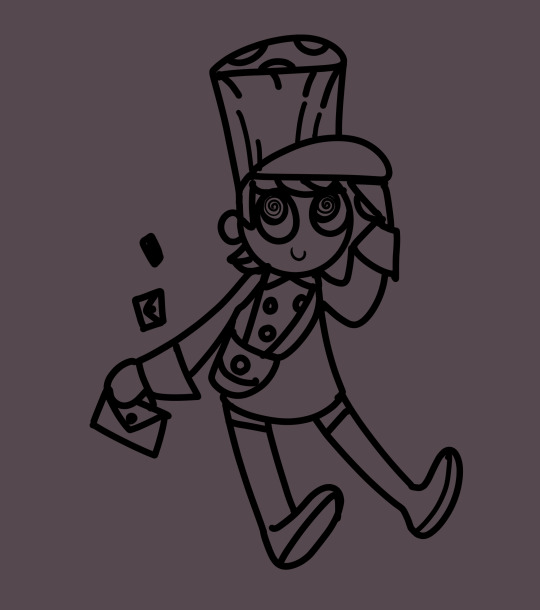
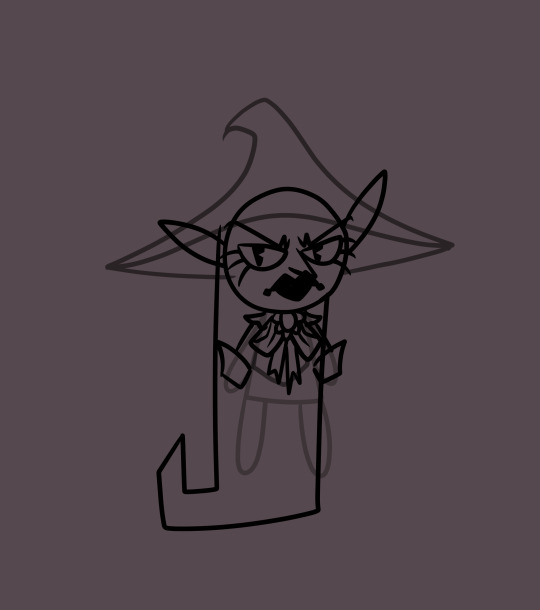
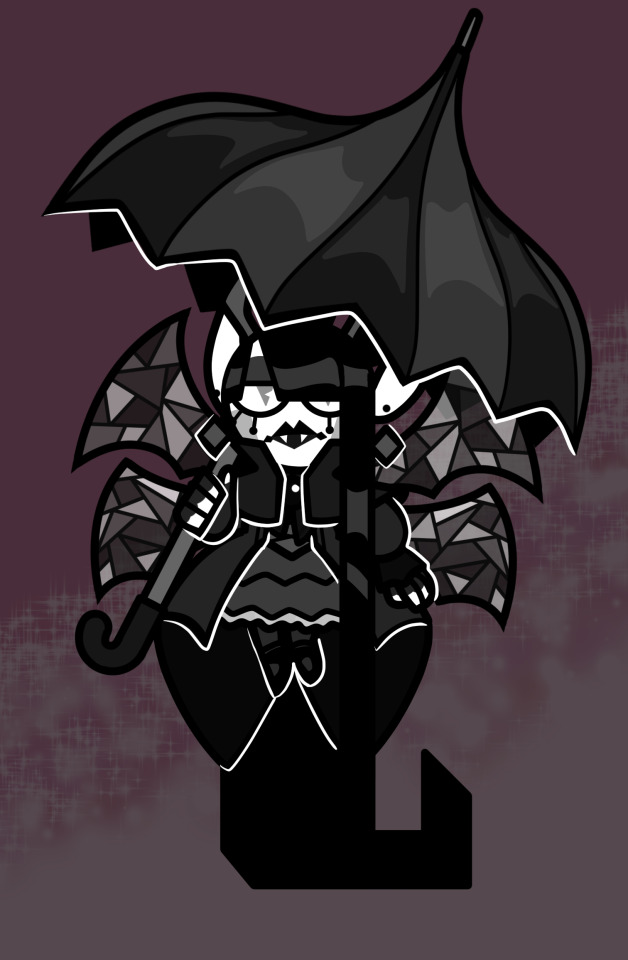
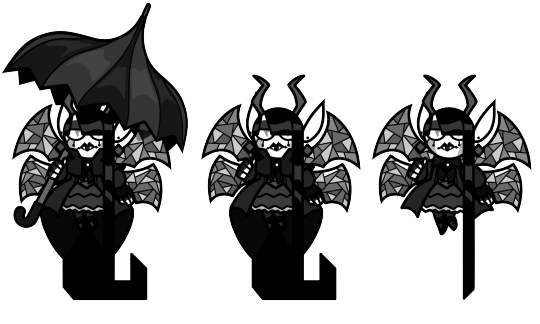
I initially had a completely different character prepared but I wasn't sure if I wanted to play her or not. Her name is Umber-Ella, Duchess of Blood and is definitely not a vampire. Vampires are not real??? Do not be dumb, grow up. She's just goth, you're stereotyping.
I like her but she wasn't quite the vibe with the high whimsy of the setting. Really happy with how all of these turned out though!
#orange#my art#just orange#original character#digital art#original characters#character design#ttrpg#fate core#witch#mailman#postie#cartoon#animated#artists on tumblr#fate core system#fate ttrpg#i love her so much
3 notes
·
View notes
Text

'why so many cat ttrpgs' its a long story; anyway note that 'cat' and the cattthulhu books are both first edition (those two have more recent editions out-- cat revised & catthulhu 10th anni)
7 notes
·
View notes
Text

expression studies but make it your skrunkly old man OC
--
references taken off of pinterest
#alyonas#my art#my character#study#hacker#ttrpg#fate core#expression study#he is my current ttrpg character and I'm obsessed#very sassy and angy boi
22 notes
·
View notes
Text
Tipua: the wrath of Ngārara...
...has just hours to go and is around $1000 NZ/$600 USD from its funding goal!
Support indigenous TTRPG design and get access to a cool spin on the Fate system in the process. The game and its setting are steeped in tikanga and te ao Māori: Tipua is set on the distant planet of Karito—a vast, labyrinthine world where tangled rivers wind through swampy wetlands, shadowy forests, ancient pā (fortification sites), and the mysterious portals known as Ngā Pūmotomoto. For those of you who have experienced the wonders of Aotearoa and Te Wai Pounamu, you will see some obvious similarities.
It's so affordable too. $20 NZ (about 12 USD) nabs you the digital rulebook and printable custom Fate tokens, as well as a social media shout out and access to the backers discord.
If nothing else: please have a read of the Kickstarter and share this post around! Not long to go and it would amazing if this awesome Māori-led team could reach their funding goal.
#fate rpg#fate core#Māori#Aotearoa#indigenous ttrpg#indigenous design#tipua#the wrath of ngārara#indie ttrpg#kickstarter#tabletop#ttrpg#fate dice#game design#rules light rpg
103 notes
·
View notes
Text
My "Home" Games
So, I've since realized this term is a bit confusing because it has since been used to differentiate on-camera Actual Plays from private games. But I started using it because I was unsatisfied with the typical concept of the "favorite" game.
Basically, I have four games that I will always return to if given a chance. These are:
Fate Core
Scion 2e (Storypath)
City of Mist
Monster of the Week
I really can't choose between these four games as to which I enjoy more. However, some people may have noticed that I don't recommend them equally. So here's why Monster of the Week is the game I recommend the most.
Fate Core
Fate Core is one of the more recent variations of the Fate system which descended from FUDGE and first appeared in specific games like Spirit of the Century or Dresden Files RPG. It is a narrative game and uses the Aspects from FUDGE, a mechanic which has influenced a lot of narrative games ever since. It can and has been adjusted to hit a large number of genres with a large collection of much varied official release content, the majority of which is available Pay-What-You-Want, and a very easy to work with open license for making third party material.
However, Fate Core is very much a toolkit system. This means that the base rules are meant to be modded so that you can hit the exact gameplay flavor you're hoping for. This means that a GM will be faced with making a fair amount of homebrewing mechanics to match desired narrative. That mentioned vast library of sample worlds does help as you can borrow mechanics from any of a number of existing world books to make your world, but it still requires some work.
On top of this, as one of the earlier narrative games, it has some rough spots in mechanics and, most glaringly, a lot of tables struggle with getting the Fate Point economy flowing at just the right level. This can cause the game to underperform. This is because the metacurrency of Fate Points generally requires the GM and players to actively engage with it by experiencing problems as a result of the down side of their Aspects. A common story I've been told is that tables will just RP their negative aspects without being encouraged to, which is fine because the game allows for giving Fate Points for that, but forget that it is a thing they should get Fate Points for. More recent narrative games have answered this problem by including purely game play ways for the metacurrency to refill so it isn't entirely dependent on players and GMs remembering to do it.
So, that brings me to the following for Fate Core
Very low buy-in cost, most of the material can be purchased for low cost or gotten for free.
Lots of support and examples.
High flexibility
High GM campaign prep required (session prep is pretty easy though)
The mechanics takes a bit of a re-working some player's approaches to gaming.
Scion 2e
A roleplaying game where you can play a hero with a spark of divinity in a modern day setting where the supernatural is public and all myths are true, especially the contradictory ones. Yup, sign me up. I am always up for this genre of game play. You got a lots of cases of "Jus' Folks" supernaturals alongside the heroes and where magic is a simple part of life.
Also, the Storypath system is a great mix of narrative and tactical. It scratches my desire to do character builds and doesn't require me to perform absurd mathematical gymnastics in order to get exactly the flavor I want for my character. The stunt system is great and seems to take inspiration from Green Ronin's AGE game's stunt point mechanics, but the gem is Enhancements and Scale.
Enhancements range from +1 to +5, with +4 and +5 only possible to reach with supernatural abilities. These are bonus successes that only apply to your roll if you have rolled at least one success on the dice. This keeps the dice relevant, as compared to Scion 1e where eventually bonus successes reached a point that dice just didn't matter anymore. The cap on enhancements would keep the power bound within a certain power level if this wasn't then match with the Scale mechanic which allows the characters to be the demigod or superhero they're meant to be.
The default setting makes some assumptions about the world but also explains how you can adjust these to your desire. For example, I generally ignore the whole idea of the war between gods and titans. So this is neither a good nor bad bit.
The big downside to this game is that the financial buy-in to get into the game is pretty significant. At minimum to play the game you need both Origin and Hero to have all the basic rules you need to play the game at its best. You can play Origin for a good long while and have fun, but it has very limited advancement and scaling, so you're eventually going to want to move on to Hero. Demigod and God are significantly different gameplay feels and you may never end up reaching that level and still be fully satisfied, so you don't need those, but they do have extra Pantheons and ideas about the world setting.
Accompanying this is that the supplements of the game are rather hit and miss. Mysteries of the World, Saints and Monsters, Demigod, God, and Titanmachy are definitely worth a purpose. However, Dragon, Masks of the Mythos, and a few others are sort of middling. Dragon and Masks in particular feel over-engineered and fiddly.
High buy-in cost
Minimum 2 book requirement
Varying supplement quality
Variable gameplay flavor from social to combat
Amazing flavor
Excellent mix of narrative and tactical mechanics
City of Mist
City of Mist is a noir superhero game where you play people who are empowered by their connection with a story (or multiple stories in the case of one of my PCs). This Mythos has a desire to relive itself on an epic scale and will empower your character to do just that. For example, the Little Match Girl mythos will seek to relive her story of deprivation, delusion, and death by exposure and if not anchored by a human will, will spread this concept throughout all of society.
It is a game descended from Powered by the Apocalypse but the extent of its changes are such that I feel that it is its own thing. It still uses the 2d6, but where it uses Fate Aspect-like "tags" instead of the common range of usually 5 stats and the combination of four themebooks instead of a single playbook makes it incredibly different.
The themebook mechanics does make City of Mist perhaps the best mechanics for doing character development out of any game I have ever played. The themebooks are meant to grow in effectiveness and versatility but also to be lost and replaced, granting experience based on the strength of the replaced theme. This process has a pacing controlled almost entirely by the player with dice-based changes well sign-posted as risks so they will never come as a surprise. You can have your character change as much or as little, as fast or as slow as you want. There is also a built in reset option for characters that don't want to retire their character but do want to go back to an entirely fresh sheet.
In addition, the Iceberg approach to planning stories and campaigns is exceptional and it has some truly great advice on how to manage spotlight between players to make sure nobody is recommended. The publishers have also started to make other games based on this system but I do not believe there is an open license as of yet, so for now the only Written in the Mist games (yes, I just made that up) we're getting are going to com out of Son of Oak Games.
However, the mechanics are a bit intricate. In my opinion they are not over-designed or extraneous and move fluidly once you're used to them but they can take a bit of getting used to. Also, while it was originally a single book, the publisher found that it was too large a book to allow for efficient publishing so it was split into two books. This puts its financial buy-in at similar levels to Scion 2e. There are some supplements, Shadows and Showdowns is especially good providing new themebooks to use, but I believe most add setting elements, example cases, and example characters.
Somewhat high buy-in cost
Minimum two book requirement
Somewhat complex rules that do work well after a brief learning curve.
Excellent character development mechanics.
Such flavor.
Monster of the Week
Of the Powered by the Apocalypse games not created by the original designers of the system, Maguey and Vincent Baker, this is the game that most understands both the limits and strengths of the PbtA system. It is a very straightforward and simple systems that knows exactly what it is and what it is here to do. And this self-awareness has allowed it to grow in ways a lot of other PbtA games struggle to do so (without becoming something entirely different at least).
As long as a story fits within the framework of investigative action horror, Monster of the Week can do it. The playbooks represent story arcs for the character drawn from recognizable shows and books like Buffy the Vampire Slayer, Supernatural, Dresden Files, Evil Dead, Penny Dreadful, and even Scooby Doo.
The hunters are able and encouraged to borrow from other playbooks to fill out their personal character build and each move is also an element of the character's story.
To date, all of the supplements have been excellent, and I'm going to say that the new supplements co-authored by myself and Marek Golonka are set to fit that mold. Also, essentially, the supplements do not change the game to such a degree that they become absolutely necessary to playing the game the way some supplements have become in other's game (a certain witch's cauldron for instance). If the only book you own is the Monster of the Week corebook (I suggest the Hardcover edition as it includes some optional rules from Tome of Mysteries) you have everything you need for an excellent game.
I highly recommend each of the supplements but even once you have them, you won't always need Team playbooks and you won't always want to be playing in one of the other world settings of Codex of Worlds. If you get the Hardcover edition of the Corebook you'll already have a lot of the optional rules from Tome of Mysteries, but that book will still benefit you in the form of its more than 20 pre-made mysteries, several advice essays on running the game, and four hunter playbooks: The Searcher, The Hex, The Gumshoe, and The Pararomantic.
The downside of this game is that you're not always going to want to do investigative action horror as a game premise. If I want something that allows for slice of life, then Fate would be the best followed by Scion 2e and City of Mist. Similarly if I want the game to be more about supernatural politics than fighting monsters. The game CAN do politics and slice of life well, but once those become the central focus of a campaign you may want to switch to a different system.
Low to Average financial buy-in
Lots of support
Excellent supplements
Accessible rules
Really needs to be the specific genre of investigative action horror.
#roleplaying games#tabletop#monster of the week#rpg#ttrpg#urban fantasy#urban horror#scion2e#onyx path#generic games#mike sands#fate core#evil hat productions#City of Mist#Son of Oak Games#Yes three of these games are urban fantasy and the fourth can be urban fantasy if I want to be what of it?
6 notes
·
View notes
Text


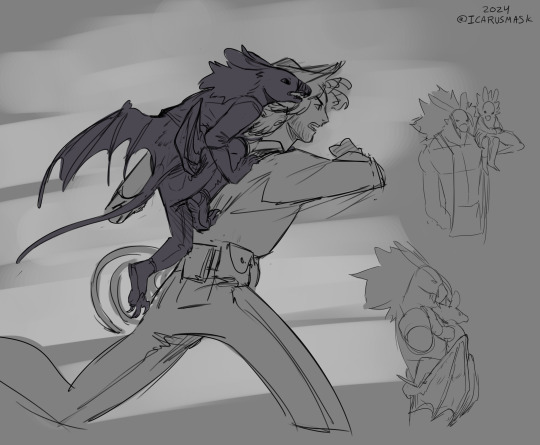
OC Art - Skor
More Skor! We had an episode where he was reverted to his younger self -- Spawned a sketch session of "how would your oc hold baby skor?" and I made these. One of them is canon! the rest are fiction haha Other oc's belong to the gaming group
13 notes
·
View notes
Text

Got new dice today at my favorite local comics and game store! They give me 80s pulp horror vibes, especially for Nightbreed.
Black-Starlight™️ w/ Red from Chessex!
#restless ramblings#dnd dice#polyhedral dice#ttrpgs#dnd#so shiny#math rocks#shiny click clacks#because you can never have too many dice#dungeon master#fate core#pathfinder
5 notes
·
View notes
Text

Who'd have thought that an insurance broker and a thug could make a great team? One knows all the law loopholes, the other isn't afraid to break them. 😂
A non-canon doodle inspired from a ghost-story-on-a-train oneshot I played with some friends using the Fate game system.
Desmond is Inkwurm's character, Silas is mine.
#artists on tumblr#digital art#illustration#dark illustration#spooky art#horror art#sci fi art#ghost#ttrpg#ttrpg art#indie ttrpg#fate core#urban fantasy#ghost stories#oc silas#gritrook art
7 notes
·
View notes